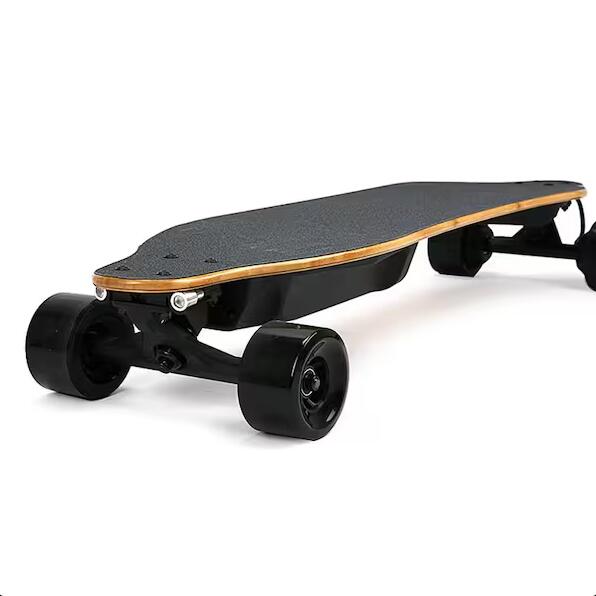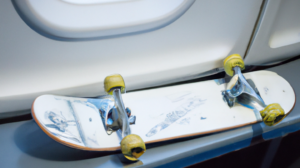Introduction to Skateboarding
Skateboarding originated in the 1950s and has evolved from a casual pastime to a globally recognized sport. Whether you are a beginner, an enthusiast, or a professional skater, understanding the different types of skateboards is essential for optimizing your performance and enjoyment. In this guide, we will delve into the various skateboard types, their unique characteristics, and the specific purposes they serve.
Standard Skateboards
Features of Standard Skateboards
Standard skateboards are the most common and versatile type of skateboard. They typically have a symmetrical shape with a concave deck, which allows for better foot grip and control. These boards usually range from 7.5 to 8.5 inches in width and 28 to 32 inches in length.
Best Uses for Standard Skateboards
Standard skateboards are ideal for street skating and performing tricks. Their design makes them suitable for skating on ramps, rails, and urban environments. The concave shape provides the grip for executing flip tricks and other maneuvers.
Longboards
Features of Longboards
Longboards are characterized by their extended length and larger wheelbase, typically ranging from 34 to 60 inches. They often have a flat or slightly concave deck and softer wheels for a smoother ride.
Best Uses for Longboards
Longboards are perfect for cruising, downhill racing, and long-distance travel. Their larger size and stability make them less suitable for tricks but excellent for high-speed descents and carving through city streets or along beach promenades.
Cruiser Skateboards
Features of Cruiser Skateboards
Cruiser skateboards blend the elements of standard skateboards and longboards. They are usually shorter than longboards but longer than standard skateboards, with lengths ranging from 25 to 37 inches. Cruisers typically feature larger, softer wheels and a kicktail for maneuverability.
Best Uses for Cruiser Skateboards
Cruiser skateboards are designed for commuting and casual riding. Their size and wheel design make them suitable for navigating rough pavements and city landscapes. The kicktail allows for easy turning and quick directional changes, making cruisers convenient for urban transportation.
Mini Skateboards
Features of Mini Skateboards
Mini skateboards, also known as penny boards, are compact and lightweight, usually around 22 to 27 inches long. They feature small, soft wheels and a narrow deck, making them highly portable.
Best Uses for Mini Skateboards
Mini skateboards are best for short commutes and tight spaces. Their small size makes them easy to carry and store, making them ideal for students and commuters who need a quick and convenient mode of transportation.
Old School Skateboards
Features of Old School Skateboards
Old-school skateboards have a distinctive shape with a wider nose and tail, a flat-concave, and a longer wheelbase. These boards harken back to the skateboards of the 1970s and 1980s, featuring larger wheels and a sturdier design.
Best Uses for Old School Skateboards
Old-school skateboards are great for pool skating, ramps, and bowls. Their broader, more stable design provides better control on vertical surfaces, making them a favourite among skaters who enjoy old-school tricks and styles.
Electric Skateboards
Features of Electric Skateboards
Electric skateboards are equipped with motors powered by batteries, allowing riders to travel without pushing. They come in various shapes and sizes, with some models resembling longboards and others mimicking standard skateboards.
Best Uses for Electric Skateboards
Electric skateboards are excellent for commuting and long-distance travel. They offer the convenience of powered transportation, enabling riders to cover significant distances with minimal effort. Some models also feature regenerative braking and smartphone connectivity for enhanced control and performance tracking.
Freestyle Skateboards
Features of Freestyle Skateboards
Freestyle skateboards are explicitly designed for performing tricks and maneuvers on flat ground. They have a symmetrical shape, often with a double kicktail and a balanced design for optimal control during spins and flips.
Best Uses for Freestyle Skateboards
Freestyle skateboards are ideal for performing technical tricks, dance routines, and creative skating. Their design caters to skaters who focus on technical skills and artistic expression through their skating.
Off-Road Skateboards
Features of Off-Road Skateboards
Off-road or all-terrain skateboards are equipped with larger, pneumatic wheels and robust trucks to handle rough terrains. They often feature a more expansive deck for increased stability.
Best Uses for Off-Road Skateboards
Off-road skateboards are perfect for adventurous skaters who enjoy riding on dirt trails, grassy fields, and uneven surfaces. Their durable construction and large wheels make them capable of tackling various outdoor environments.
Double Kick Skateboards
Features of Double Kick Skateboards
Double kick skateboards have upturned ends on both the nose and tail of the deck, providing two cocktails for performing tricks. This design allows for greater versatility in trick execution and control.
Best Uses for Double Kick Skateboards
Double-kick skateboards are designed for skaters who enjoy performing advanced tricks and stunts. The dual kicktails facilitate a wide range of tricks, making them popular among street skaters and those who frequent skate parks.
Downhill Skateboards
Features of Downhill Skateboards
Downhill skateboards are specifically designed for high-speed downhill racing. They feature a more extended deck with a low centre of gravity, stiff construction for stability, and wide trucks for better control.
Best Uses for Downhill Skateboards
Downhill skateboards are ideal for skaters who thrive on speed and precision. Their design ensures stability and control during high-speed descents, making them suitable for racing and competitive downhill skating.
Conclusion
Choosing the correct skateboard type depends on your preferences, skill level, and the specific activities you plan to engage in. Whether cruising through city streets, performing intricate tricks, or racing downhill, a skateboard is tailored to meet your needs. Understanding each type’s unique features and best uses will enhance your skateboarding experience and help you make an informed decision.
















